
National Album Day: Our selection includes iconic records such as AM, Carrie & Lowell, Grace, Is This Desire? and Wrecking Ball.
On National Album Day, a selection of artists and songwriters reveal their favourite records and why they mean so much
We might live in an age of playlists and shuffle but, when it really comes down to it, we still love to immerse ourselves in an actual album. The purest form of expression for songwriters and musicians, giving them chance to fully document a moment in time, the very best albums change lives and reflect our own feelings back to us. Providing the soundtrack for the best and worst of times, they amplify the joy of the former and help us survive the latter. To celebrate National Album Day, we asked a selection of artists, with a particular focus on songwriting, to write about their favourite albums…
Read about The Albums That Changed Everything

Airs And Graces by June Tabor
(Topic Records – 1976)
Michael Price: June Tabor’s 1976 debut album on Topic was both a solace and a revelation when I first heard it, on headphones in a lonely student room, away from home for the first time. The songs she interpreted, whether learned by ear from other singers like Queen Among The Heather, or written and attributed like Eric Bogle’s The Band Played Waltzing Matilda, illuminated the idea of the song as a timeless human story passed from singer to singer. It’s a flame I carry to this day.

AM by Arctic Monkeys
(Domino – 2013)
New York Pavements: It’s Alex Turner’s lyrical originality which always gets me, ‘From the bottom of your heart – the relegation zone,’ or, ‘Arabella’s got some interstellar-gator skin boots and a helter skelter round her little finger and I ride it endlessly.’ He’s only telling simple tales of lost love but he’s got such a lexicon of original metaphors that he draws you into his world of self doubt and yearning, making you feel “heartache” was a new genre. And these images of, ‘Lips like the galaxy’s edge,’ are held down by the heaviest of rhythm sections cut through with caustic guitars. Powerful stuff.
 Aquemini by Outkast
Aquemini by Outkast
(LaFace – 1998)
Ryan Mahan (Algiers): Truly transcendent songwriting not only teleports the listener from their mundane lives into spectacular new worlds, it also transforms the very place you live in. For me, Outkast’s Aquemini contorts the sounds of my backyard Atlanta: its trunk rattles and 808 ticks, its thunderstorms and traffic palls, its shit-talking and gangster leanings, into a simultaneously technicolour and black and white grain space odyssey. Oh, and Drè’s rhymes are hard as fuck.
 Are You Experienced by Jimi Hendrix
Are You Experienced by Jimi Hendrix
(Track – 1967)
Muca: When it was released, it blew away the world of music. Hendrix’s completely innovative approach to songwriting and electric guitar-playing established a new direction in psychedelic, blues and hard rock, bringing guitar-playing to a new level. And it still sounds fresh and innovative today.
 Ask Me No Questions by Bridget St John
Ask Me No Questions by Bridget St John
(Dandelion Records – 1969)
Max Kinghorn-Mills (Hollow Hand): Bridget St John is unique amongst her peers, her deep & mournful voice resonates with me in a special way. Ask Me No Questions (1969) argues for simplicity over showmanship, meditative over superficial. This LP inspired me a great deal at university, alone in my basement flat writing songs and unearthing the history of British folk. I wasn’t a social student but I knew my way around the Incredible String Band. Bridget’s Rossettian cover image is as beautifully mournful and mysterious as is her music. When a song is so enchanting without embellishment, it’s best left to stand alone, brightly shining.
 Bella Donna by Stevie Nicks
Bella Donna by Stevie Nicks
(Modern Records – 1981)
Mollie McGinna (Dea Matrona): So many of my favourite albums end up being an artist’s debut and one that I really love is Stevie Nicks’ first solo record Bella Donna. Any album that has a song as strong as Edge Of Seventeen is going to be a classic. I love that she collaborated with Don Henley and Tom Petty as they’re two of my heroes. I find it so fascinating that a lot of the songs had been written prior to Fleetwood Mac, so she really had been saving them for the right moment. My personal favourite tracks on this album are Kind Of Woman and Stop Draggin’ My Heart Around.
 Birds Of My Neighborhood by The Innocence Mission
Birds Of My Neighborhood by The Innocence Mission
(Kneeling Elephant – 1999)
Nathaniel Bellows: ‘Look for me another day / I feel that I could change / I feel that I could change.’ I was staying in my parent’s empty house—one they’d just moved to, having moved many times since I was a child—when I heard these lines from The Lakes of Canada, from the album Birds Of My Neighborhood by The Innocence Mission. The directness of the lyric, sung—and written—by Karen Peris, with her sorrowful, soaring voice, struck me in the most melancholic yet uplifting way. The song is a microcosm of the entire album, which is filled with small details and observations of everyday life that resonate with emotional depth and acuity. ‘If I could, I would break into flower / If I could, I’d no longer be barren.’ I revisit Birds Of My Neighborhood whenever I want to experience deep humanity, captured in song.
 Blood On The Tracks by Bob Dylan
Blood On The Tracks by Bob Dylan
(Columbia – 1975)
Andrew Davie (Bear’s Den): I find widely-accepted masterpieces quite frightening to interact with. Blood On The Tracks is no exception, but recently I fully conceded and it has now become my favourite of Dylan’s records. Perhaps it’s because it’s the closest I feel that I can get to Dylan as a person and yet somehow it is still so shrouded in mystery. There is an intimacy combined with a distance, a familiarity with a longing that it is impossible not to feel while you listen to it. This intimacy and distance in the lyrics perfectly mirrors those difficult and contradictory feelings at the end of any relationship: ‘How can someone I know so well, feel so far away?’ To write one of these songs and conjure up those feelings would be an unbelievable achievement, to write an album like that is the work of a genius.
 The Boatman’s Call by Nick Cave and the Bad Seeds
The Boatman’s Call by Nick Cave and the Bad Seeds
(Mute/Reprise – 1997)
Robbie Furze (The Big Pink): Nick Cave is one of my favorite lyricists and if I had to choose just one album of his it would have to be The Boatman’s Call. The entire album is a masterpiece, but one of the most beautifully written songs of all time lives on that album, “Into My Arms.” It’s a tragic love song about separation and a call to the divine to take care of a lover that he is no longer with. It has a push/pull sentiment, where he knows it’s right to part ways, but would do anything to have her back in his arms. It’s almost prayer-like in its simplicity. The line, “…and I don’t believe in the existence of angels, but looking at you I wonder if that’s true,” has got to be the most romantic line ever written in music. Nick Cave’s writing is from the soul and hearkens back to legendary songwriters of the soul era. His songs have everything, incredible narratives, twisted tales, beautiful descriptions. Each time I hear The Boatman’s Call I fall in love with it all over again; I cry, I laugh, it has everything.
 Carrie & Lowell by Sufjan Stevens
Carrie & Lowell by Sufjan Stevens
(Asthmatic Kitty – 2015)
Chris Cleverley: Carrie & Lowell by Sufjan Stevens stands out for me as a masterclass in songwriting. His frequent contrasting of the academic with the mundane creates such an arresting emotional landscape. You’re lulled by vivid, lyrical metaphors only to be jolted suddenly by moments of stark realism. It’s a highly personal, challenging album, yet so human and relatable. He never seems bound by the tropes and expectations of genre, wielding this bold, eclectic instrumentation to move seamlessly between varied sonic moods. There’s an intense silence as the final track ends and you realise how deeply you’ve been immersed in this ambient, dreamlike world.
Olivia Lunny: Carrie & Lowell is one of my most-played albums of all time. This body of work was the soundtrack to my late teenage years. It played on repeat through my headphones on long flights, and accompanied many gloomy days at home on vinyl. Sonically, this album feels extremely intimate – focused around acoustic guitars and piano. Its lyrical content is dark but hauntingly beautiful, Sufjan’s writing in this body of work is true poetry.
 Cross by Justice
Cross by Justice
(Ed Banger/Because/Vice – 2007)
CJ Baran (CAGES): My favourite debut album has to be Cross by Justice. I know this may not seem like an obvious choice for songwriting as it’s a very production heavy, sample based debut, but it’s the masterful way Justice was able to stitch these chords, vocal phrases and audio slices together to make infectious hooks that feel like the past and the future at the same time that had me spellbound. This album feels like 1970s sleaze dressed in 2070s futurism and it’s that juxtaposition that I’m obsessed with. The day I heard this album was the day I decided I wanted to be a songwriter and producer and I haven’t looked back since.
 Crying, Laughing, Loving, Lying by Labi Siffre
Crying, Laughing, Loving, Lying by Labi Siffre
(Pye – 1972)
Jess Shoman (Tenci): A newly discovered fave that helped me climb out of the winter blues last year is Labi Siffre’s Crying, Laughing, Loving, Lying. It feels like I’ve known it all my life. Labi’s songwriting strikes the perfect balance of deep and profound storytelling while still remaining feathery and melodic. He creates a world that feels easy to be in, even if what he’s writing about might not always be. The lyrics have a fighting sense of wanting to be heard, but make it clear that these songs are for him. ‘This is my song and nothing can make it die.’
 Debut by Bjork
Debut by Bjork
(One Little Indian/Elektra – 1993)
Quasi Qui: We pick the debut of Bjork, Debut. We grew up listening to this album in various stages of both our lives. It’s a timeless, ageless sound and production, which still to this day you can extract new textures and inspiration from when listening to it. Every track delivers a carefree and rebellious approach to expressing human emotion with her esoteric and unorthodox vocal expression. It’s unapologetic and has a child-like excitement throughout the album. Venus As A Boy is also one of the best songs ever, especially when paired with the training montage in Léon: The Professional.
 Deerhoof vs. Evil by Deerhoof
Deerhoof vs. Evil by Deerhoof
(Polyvinyl/Joyful Noise/ATP Recordings/Flying Nun/P-Vine – 2011)
Julie Odell: Deerhoof vs. Evil is like a perfect recipe. A well-balanced meal of tenderness, crunch, gristle, beauty, surprise, chaos, and fat juicy beats. Something for your mind to sink its teeth into with every unctuous sonic bite. Each song is an everlasting gobstopper that takes your eardrums from one flavour to another, always leaving you with a palate cleanser to prep for the next course. This album pushes, scrapes and scratches to a point that is almost unbearable and then suddenly lifts you off your feet into a floating bed of feathers. Deerhoof’s musical storytelling is reminiscent of a near-death experience where everything afterwards feels brighter and new.
 Distance by Flying Saucer Attack
Distance by Flying Saucer Attack
(Domino Records/VHF Records – 1994)
Oliver Ackermann (A Place To Bury Strangers): I am in love with the songwriting on the Flying Saucer Attack record Distance. Its method is deliberately not purposeful but based completely on feeling. It works perfectly. Pete Kemper recently did a remix for one of my songs that meanders for 10 minutes and is completely enjoyable through the whole song, I would never dare do that, yet Flying Saucer Attack does this through the entire record. The blankets of noise morph and change at such a natural pace that it always leaves me wondering if it was even intentional. The way the instruments are completely distorted with the vocals recorded far off in the distance makes me think that if they could have been recorded better they would have been. It doesn’t matter. The moment in time is captured perfectly. That distance is a warm magical dream.
 The Downward Spiral by Nine Inch Nails
The Downward Spiral by Nine Inch Nails
(Nothing/Interscope – 1994)
RXTH: Raw, intimate, and intense. The songwriting on this masterpiece of an album oscillates so completely between self-loathing, violence, and tender regret, that it offers the listener a disturbingly visceral experience. Hard to listen to in places, you’re left feeling exhausted yet cleansed – as if your inner demons had been exorcised, or at least recognised. And that for me is wherein the power of this album lies. It resonates with our most discordant and distorted thoughts, offering the recognition that we aren’t alone with our fragments of darkness. I have no doubt that this album saved lives. I think it possibly even saved mine.
 Dragon New Warm Mountain I Believe In You – Big Thief
Dragon New Warm Mountain I Believe In You – Big Thief
(4AD – 2022)
Beth Hopkins (Queen Colobos): I’ve completely fallen in love with Big Thief’s latest album; it’s so raw. The lyrics are so poetic, the styles of each song are hard to define by a genre and the recordings capture the earthy, live nature of music that I crave for in albums these days. Adrianne Lenker’s voice and delivery of her lyrics makes the listener feel like they’re swimming inside the sound. My favourite song is Change; to me it’s the music’s simplicity that makes it so effective – there’s no ego about it, the music is just laid bare. The honesty in this album has inspired my songwriting so much.
 The End Of History by Fionn Regan
The End Of History by Fionn Regan
(Bella Union – 2006)
Mike Halls (Clean Cut Kid): This album changed my life when it came out in 2006. I was in my first year of music college and I was like a human sponge, soaking up everything I heard. This was the first time I heard a modern writer take a tiny personal subject and explode it into the most emotionally moving landscape. It sounds simultaneously fresh and debut-ey, and like some post-apocalyptic ode to the rawness of loss. Bunker Or Basement and The Cowshed are particular highlights. The way Fionn writes about loss in these two songs has a total lack of vanity; nothing to prove as a writer whatsoever.
 Exile On Main St. by The Rolling Stones
Exile On Main St. by The Rolling Stones
(Rolling Stones – 1972)
Johnny Taylor (The Horn): One of my favourite albums is Exile On Main St. by the Rolling Stones. I love how they all escaped England because they couldn’t pay their taxes and wrote a double album in Keith Richard’s basement in the South of France. They were doing a spectrum of drugs, spilling onto to a mess of cables, while their children and wives lived upstairs. You can really hear the drunkenness in the recordings. I don’t think it did very well initially with the critics but it’s aged so well. Loving Cup is one of my favourites, but the whole album is a raucous celebration of hedonism and Jagger’s magazine-rip-out-style lyrics are fun but sometimes laced with sadness and nostalgia. I always put this record on when I have a house party in my flat. It gets everybody going.
 The Freewheelin’ Bob Dylan by Bob Dylan
The Freewheelin’ Bob Dylan by Bob Dylan
(Columbia – 1963)
Sam Himself: In one of my earliest memories, I’m lying on a soft carpet near a speaker listening to Bob Dylan. ‘Well, it ain’t no use to sit and wonder whyyy babe…’ I didn’t know English at the time, or Dylan, but I became obsessed with those drawn-out vowels on Don’t Think Twice, It’s All Right. I try to keep that in mind when I write my own songs: the words have to follow the sound. Whatever meaning you’re trying to convey, it won’t truly resonate unless it does just that – resonate.
 Goodbye Yellow Brick Road by Elton John
Goodbye Yellow Brick Road by Elton John
(DJM – 1973)
Halley Neal: One consistently favourite record of mine is Elton John’s Goodbye Yellow Brick Road. For me, these lyrics and piano parts feel like childhood, safety, light, and peace. I think any hook that can immediately bring a quality of positivity into my spirit is one that has affected me in one of my favourite ways. This album is the perfect example of a body of music I’ve grown and adapted alongside – which I believe is one of the most beautiful relationships a person can have with music.
 Grace by Jeff Buckley
Grace by Jeff Buckley
(Columbia – 1994)
Nicki Wells: I would choose Jeff Buckley’s Grace as my favourite album from a songwriting perspective. Buckley had a way of capturing poetry and grit like no other. His songwriting stems from a place of ethereal poetry but is also grounded in earthy realism. There’s something also timeless about it. What he does for us as listeners is to be reminded of the grace in the grit of life. He once mentioned in an interview, ‘I have no advice for anybody; except to be awake enough to see where you are at any given time, and how that is beautiful, and has poetry inside. Even the places you hate.’
 Grand Prix by Teenage Fanclub
Grand Prix by Teenage Fanclub
(Creation – 1995)
Sam Ruschman (Smut): Grand Prix by Teenage Fanclub really showed me how cohesive a record with multiple songwriters can sound. Blake, Love and McGinley are individually so good at writing that it just works. You’ve got Sparky’s Dream, and then later Say No which has a different vibe but they totally make sense together. It feels like they honed their sound, and it shows how, if you’re tuned into how your bandmates write, it can pay off and sound like a unified voice.
 Gris Gris by Dr John
Gris Gris by Dr John
(Atco – 1968)
Maarten Devoldere (Warhaus/Balthazar): My favourite album is Gris Gris by Dr John. It was the first album I found on cassette as an eight-year-old in my big brother’s bedroom. Up to this day it amazes me that this cult and weird music could win me over as a kid. I was in love with the atmosphere. Dr John was like a shady character that ran away from an old Disney movie. Later on, it taught me how important atmosphere was in songwriting and recording. Or how at the one hand you have The Beatles with their unequalled songwriting skills and at the other hand you could create exciting tracks by finding the right groove and vibe. It looks easy but I find it the hardest part in songwriting.
 Harvest by Neil Young
Harvest by Neil Young
(Reprise – 1972)
Al Costelloe: When I was passed down an old record player in my early teens, Harvest by Neil Young was one of the first records I bought. I remember picking it up at a car boot sale because he was the only artist I’d heard of in the seller’s pile. When I got it home, I connected so strongly to the record from the first song. I mean, what could reflect an over-sensitive teenager’s experience more than being a, ‘Lonely boy (or girl!), out on the weekend,’ not able to say or do the right thing!
 The Hissing Of Summer Lawns by Joni Mitchell
The Hissing Of Summer Lawns by Joni Mitchell
(Asylum – 1975)
Daniel Carlson: By the time I heard Joni Mitchell’s The Hissing Of Summer Lawns for the first time – in the summer of 2000 – I was 35 years old. My wife and I were on vacation in Sweden and I found a used copy at a small shop on Långholmsgatan (Stockholm) and immediately put it in the CD player of our rented Volkswagen. By this point in my life, I knew many great records. Perhaps I’d even begun to take many of them for granted. But Hissing… hit me like a bolt of lightning. Yes, the sound of it, but it was the songs that floored (and floor) me. To say that I go to it for inspiration isn’t quite right, because that suggests that I’m able to take something from it, and incorporate it into my own writing. Closer would be to say that it puts me in a state of awe. It reminds me what is possible.
 Hot Dreams by Timber Timbre
Hot Dreams by Timber Timbre
(Arts & Crafts – 2014)
Phill Reynolds: Huge, to me. I adore its peculiar mix of delicacy and strength, light and dawn: they write with courage, long-term view and intriguing debauchery. It’s pretty hard to compose an entire record through such a cinematic and vivid lens, drawing on the past sounds skipping the vintage label or the frame of a specific musical era. The lyrics, the harmonies, the production; everything fits and permeates perfectly. They hold a key only a few others use with such ability: space. They’re noble masters at less is more, leaving room for the listeners to become part of their intense landscapes. Chapeau.
 How Bizarre by OMC
How Bizarre by OMC
(Huh! – 1996)
Reilly Sams (Yellow Bellies): My favourite album of all time is 1996’s How Bizarre by OMC, a band from New Zealand fronted by Pauly Fuemana. The lyricism is phenomenal, honest, and free-flowing – with a rhythmic flow that emulates early nineties hip hop. The songwriting carries an illusion of simplicity, without bringing down the integrity of the music – every artist’s dream… Filled with super catchy vocal hooks and humble storytelling, I believe this album to be the best Kiwi offering out there.
 Is This Desire? by PJ Harvey
Is This Desire? by PJ Harvey
(Island – 1998)
Littleuniverses: Is this Desire? by PJ Harvey has had a huge impact on my life as it was my gateway into her music. I’ll never forget the moment I heard Electric Light. It was a revelation. The combination of heavy bass and stripped instrumentation, alongside her voice singing very intriguing lyrics, had me mesmerized. I purchased the album that same day and immediately stopped everything to listen to it several times in a row. This album exhibited a form of poetic storytelling that was sung as a performance to the captivating instrumentation created for each one of its songs. For all of those reasons, Is this Desire? remains unforgettable to me.
 Jonathan Goes Country by Jonathan Richman
Jonathan Goes Country by Jonathan Richman
(Rounder – 1990)
Joyeria: Country music offers a sort of template for sound. What separates “good” country songs from “bad” ones is less the composition and more what you’re saying. I also like hearing the recorded chaos of people in a room. I don’t remember when I first heard Jonathan Richman’s Jonathan Goes Country, or how it came into my possession. His lyrics have purity, seriousness and humour, all balanced in a way very few have done well. Tom Brumley (who played for Buck Owens) plays steel on the album and it’s mind-blowing. There are a few covers on the album, which is in keeping with the history of country artists playing each other’s songs. It should be up there with the Merles, Partons, Jennings, Halls et al. But seems unfortunately overlooked.
 Kid A by Radiohead
Kid A by Radiohead
(Parlophone – 2000)
John Elliott (The Little Unsaid): One of my favourite albums of all time is Kid A. A monumental shift in Radiohead’s sound world at that point, the songwriting shifted too but is still just as strong as it was on OK Computer. Amazing surreal lyrics, song structures that warp and shift around glitchy beats and subterranean swirls, a mood of anxiety and madness that regularly gives way to beautiful moments of clarity and tenderness, like moonlight through a clearing. It’s an album I want to live inside every time I go back to it, a whole world meticulously crafted for us to get lost and found in.
 The Lamb Lies Down On Broadway by Genesis
The Lamb Lies Down On Broadway by Genesis
(Charisma – 1974)
Alien Tango: An acquired taste, considered a masterpiece by prog nerds, this album’s songwriting is so bad in my opinion that it comes full circle and becomes good, kinda like a music equivalent to The Room. Their last album with Peter Gabriel as a frontman, he tried to write a full-blown Broadway play in the form of a concept double album. The quality of the story and lyrics seem like what a high schooler would write for a last-minute assignment, but the result is surprisingly compelling, full of odd imagination and even brilliant at times (and the musicianship is top-notch). It made me physically sick the first time I listened to it but I’ve kept coming back to it.
 Lift Your Skinny Fists Like Antennas To Heaven by Godspeed You! Black Emperor
Lift Your Skinny Fists Like Antennas To Heaven by Godspeed You! Black Emperor
(Constellation/Kranky – 2000)
Jesse Tabish: At 18 I had just quit my high school band, when my friend turned me on to a record that would dramatically shift my musical ear. Lift Your Skinny Fists Like Antennas To Heaven by Godspeed You! Black Emperor was something that shook me and made me dream outside of the in-the-box songwriting. There was so much emotion conveyed without any lyrics. Music that was made for the listener to be a participant rather than a passer-by. As I am writing this, I am listening again to the opening track, I still get a lump in my throat like the first time I heard it. It’s hard to regain the feeling of youth, but this record sticks with me for good.
 Loveless by My Bloody Valentine
Loveless by My Bloody Valentine
(Creation/Sitre – 1991)
Rodolphe Coster: Loveless is to me the ultimate record and the ultimatest live experience to live. First time I was 16 when my dad drove me and a friend to Brussels to the Loveless release tour. The band delivers all I love in songwriting, and all that is still part of my creatives: serialism, minimalism, noise, pop structure, vocal romanticism, dub basslines, punk attitude.
 Mark Hollis by Mark Hollis
Mark Hollis by Mark Hollis
(Polydor – 1998)
Nick Martin (Blue Luminaire): I adore Hollis’ self-titled album. Its exquisite refinement. Its balance of extreme vulnerability and emotionality with elegant restraint and eccentricity. I find myself returning time and again to this record, and being continually surprised by it. The time it takes to say what it needs to say. Never hurried. Never sentimental. Always searching, questioning; Being itself in all its strange beauty and beautiful strangeness. Those aren’t contradictions. ‘Wise words, wild words/D’you see,’ Hollis leaves us with these final questioning lyrics on the last track A New Jerusalem. His voice shaking, a fragility I’ve never heard on record before. Wise and wild.
 Melodrama by Lorde
Melodrama by Lorde
(Lava/Republic – 2017)
Grace Davies: I’m honestly jealous of anyone who hasn’t yet heard this album, I wish I could listen to it for the first time again. As a songwriter/artist, sometimes you go into sessions and say, ‘I want to write a song in the vein of ____’ – but it’s like Lorde never did that once for Melodrama. From every mind-blowing metaphor hidden in every lyric, to every man-made explosion sound hidden in the production (yes, I am talking about 2:08 of Homemade Dynamite), it is SO unique, SO euphoric and SUCH a masterpiece. Liability had me on my kitchen floor crying, while Perfect Places had me throwing my arms out of the window of my car. This album takes you on a journey to outer space where only goosebumps exist. Long live Lorde.
 Metals by Feist
Metals by Feist
(Arts & Crafts/Cherrytree/Polydor – 2011)
Someone: Metals by Feist is my idea of a songwriting masterpiece. It explores a raw, unfiltered kind of femininity in all its different shades and strengths and flaws. I couldn’t describe this album with a single word or mood, it’s too layered for that. Like The Bad In Each Other, which starts heavy and earthy and then folds itself into melancholic and soothing, then slides back into a heaviness that can sometimes feel oppressive and sometimes like a release… depending on my mood at the time of listening. I like albums that change shape with you over time – and Metals does that for me.
 The Modern Lovers by The Modern Lovers
The Modern Lovers by The Modern Lovers
(Beserkley – 1976)
Dion Lunadon: An album where music, lyrics, performance and sound come together to make something unique and special. Years ahead of its time (recorded in 1972) and criminally almost never mentioned in the same group of acts that helped create the genres of punk and new wave. An album where every song gets its moment to shine. Dynamic rockers like Road Runner, She Cracked, Girl Friend and Modern World and on the other end of the spectrum, songs like Hospital, Pablo Picasso and Old World. The lyrics and Jonathan Richman’s delivery of them are brilliant, honest and sincere. The lyrics are just so memorable. Another John Cale produced, groundbreaking, genre-defining record.
 Nevermind by Nirvana
Nevermind by Nirvana
(DGC – 1991)
Maya von Doll (Sohodolls): I got into this album deeply and belatedly as a 14-year-old. The sound was like nothing I had ever heard before. Their version of grunge was heavy and dark yet the production was clear and warm. The chord progressions reminded me of Chopin and I had been having piano lessons for about two years. But songs like Lithium and Smells Like Teen Spirit were in another league compared to other grunge bands. The magic of Kurt Cobain’s songwriting was summed up well by him when he said he wanted the heavy metal sound of 1970s Black Sabbath but with Beatles-esque melodies on top. Lyrically there was unhinged, fun and freedom in his lyrics. Shouting out random words such as, “My libido/A mosquito!” in the raucous post-chorus of the lead track was so incredibly cool to my teenage self.
 OK Computer by Radiohead
OK Computer by Radiohead
(Parlophone/Capitol)
Tom A. Smith: OK Computer is my favourite album by far. It’s such a progression from their previous album as they start to take risks and try things that they wouldn’t have done before whilst still keeping the tracks mainstream. Paranoid Android and No Surprises are my go-to tracks on it but as a body of work, it is just perfect. I go back to this album so much and love how he doesn’t keep his vocals straight on anything. I thought a bit of a warble would make you sound like Mariah Carey, but Thom proves this isn’t true at all.
Discover Tom A Smith’s Songwriting Survival Kit
 Outside Child by Allison Russell
Outside Child by Allison Russell
(Fantasy/Concord – 2021)
Joselyn Wilkinson (Joselyn & Don): Much has been written about Allison Russell’s breakthrough debut album, Outside Child, and its fearless examination of trauma and resilience. But beyond her ability to find beauty in the darkness, Allison inspires me with her writing style. Like me, she comes to songwriting as a poet with a unique voice, whose metaphors swirl around her subject until they have almost secretly skewered it. With no instinct to fit her songs to pre-approved templates, Allison’s work is a reminder to all of us to embrace our own authentic voice, and let our art carry us – fearlessly – into the deepest part of ourselves.
 Purple Mountains by Purple Mountains
Purple Mountains by Purple Mountains
(Drag City – 2019)
Emily Haines (Metric): The final offering from David Berman before moving on from this world was the self-titled Purple Mountains released on July 12, 2019. He died a few weeks later, leaving all of us who have admired him deeply since the very first Silver Jews album with a profound sense of loss and appreciation for everything he wrote. It may seem in retrospect that he knew he was on his way out and crafted the songs on this album as a farewell, but for me Purple Mountains stands outside the context of Berman’s exit from this earth as a permanent sonic companion, keeping his brilliance alive in my mind.
 Randy Newman by Randy Newman
Randy Newman by Randy Newman
(Reprise – 1968)
Billy Lockett: My dad was a fine artist and used to have a vinyl player in his studio. When I was a kid I would randomly pick vinyls from his collection and play them while he painted and this was one that used to blow my mind. I think the sound confused me so much when I was younger but as I got older I grew to love it, the songwriting always went in an unexpected direction but never felt jarring. Considering the year this was recorded, it feels miles ahead of its time. Something I love about the songs on this album are the stories, in particular I Think He’s Hiding. Songs like So Long Dad hold a special place in my heart because it just brings back good memories of rolling him cigarettes and screaming out the words together. It’s been a long time since he passed away but this album symbolises our times together, it’s so much more to me than just brilliant songs.
 Rings Around The World by Super Furry Animals
Rings Around The World by Super Furry Animals
(Epic – 2001)
Ynys: I remember hearing it for the first time at the cd/headphones booth at Virgin Megastore Cardiff when I was about 13. The songs are simply amazing – lush, extravagant and futuristic. You feel like you’re on a different planet when you’re listening to it on headphones. You’ve got 1970s soft rock, more harmonies than the Beach Boys, heartbreakingly beautiful ballads, cinematic orchestral strings, and electronica. Underneath these ambitious arrangements are some of the best songs written. One of my favourite songs from the album is the last song Fragile Happiness, which ends with the question, ‘Does Will Smith lie? Does he ever cave in and cry?’
 The Rising by Bruce Springsteen
The Rising by Bruce Springsteen
(Columbia – 2002)
RJ Thompson: In those formative teenage years when I was first getting into songwriting, I was very into songwriters who had something meaningful to say. September 11th happened on my first day at college, and it completely shaped my songwriting moving forward. Within twelve months of the attacks, Springsteen released The Rising… an album written in part before the attacks, and in part after. Every song held relevance. Hope. Stories of rising from the ashes. Into The Fire, The Rising, My City Of Ruins… they told a story of a city, a country, and a civilised world that needed to heal.
 Rome by Danger Mouse & Daniele Luppi
Rome by Danger Mouse & Daniele Luppi
(Parlophone/EMI/Lex/Third Man – 2011)
The Adam: The album Rome by Danger Mouse & Daniele Luppi is my favourite album. The 15 tracks feel like one long journey in well-composed, played and produced music. That’s exactly what a good album is to me. Albums as a format is my favourite media to experience bands. You really get to understand the composer because they have time to show many different nuances.
 6 Feet Beneath The Moon by King Krule
6 Feet Beneath The Moon by King Krule
(True Panther/XL – 2013)
Malaki: When I listen to albums I want to walk away feeling inspired. I find these days it’s so easy to create an album with no real story or substance. I want to view an album as a listening experience. Almost a sonic journey that can take you from reality for the duration and once it’s finished leave you pondering each track. For me, that was 6 Feet Beneath the Moon. I was 16 when I discovered King Krule and shortly after came the discovery of this debut album. His fusion of genres and styles was right up my alley. I was a huge hip hop fan and loved the experimentation he dove into with tracks such as Will I Come, and the almost whiny tonality in his voice create a sense of yearning and make the listener explore their own desires. The vulnerability in his lyrics made me fall in love with songwriting. Listening to this young man pour his heart out about loss and heartbreak inspired me to explore themes in my life that I haven’t come to terms with. Once I assessed them in my head, I began writing them down and creating music based around these experiences.
 Solid Air by John Martyn
Solid Air by John Martyn
(Island – 1973)
Jack Sedman (Seafret): This album was monumental when it came to me and Harry (Draper – guitar) understanding each other as songwriters. John Martyn’s guitar style was so unique and continues to be Harry’s main influence to the day. I’ve always loved the way John Martyn sings like his voice is just another instrument in the band. The phrasing and timing he uses to deliver his lines are something I hadn’t heard before and showed me that there really are no rules. This album was doubly special as it showed us experimental production behind an acoustic guitar and vocal. He still is and always will be one of our idols.
Read our interview with Seafret
 Soul On Fire by Dean Blunt
Soul On Fire by Dean Blunt
(Self-release – 2018)
Leatherette: This album came out in 2018, and it completely changed our perspective. We didn’t know anything about Dean Blunt, but when we heard this album, it became immediately clear he was something else, a special artist who soon became one of our favourites and influenced us greatly. The songwriting is easy, almost obvious, free, punk, alienating, relaxed, crazy, smart. This album is an instant classic. It feels like it’s always existed in the darkest and purest part of your heart and mind. We fell in love with Dean Blunt’s music approach, because it is so spontaneously and wisely post-internet. Dean Blunt steals from the world and creates temporary autonomous zones, to quote Hakim Bey. Our songwriting became more and more based on this process. We also love the fact that everything, both lyrically and musically, sounds abstract and charming as if it was poetry (short, evoking, smoky, metropolitan), but the songs are also strangely solid even when they should break. Last but not least, on Soul On Fire, Dean samples Metallica and Genesis without sounding kitsch… how the hell is this possible?
 Southeastern by Jason Isbell
Southeastern by Jason Isbell
(Southeastern – 2013)
Nels Johnson: Memory eventually leaves us all. The older we get, the farther away we travel, the harder it is to remember past experiences, feelings, and relationships. Jason Isbell’s Southeastern is a perfect snapshot of a moment in time. The regret, the introspection, the failed attempts to get better are belayed by the need to get up and try again. Isbell’s voice guides the listener as they stumble together on a journey towards redemption. Isbell’s journey becomes the listener’s journey. Rarely has there been a record that explores the range of human experience and emotion with equal parts poetry and economy.
 Tak Zakalyalas Stal by Shortparis
Tak Zakalyalas Stal by Shortparis
(Universal Music Russia – 2019)
Fable: Tak Zakalyalas Stal, which translates Thus The Steel Was Tempered, changed something in me and has been such an inspiration and lesson in musical freedom. I listened to this record a lot through the lockdown and fell in love with their approach of framing wild noise with beautiful arrangements and contorted grooves. The lyrical content is powerful and their live ritualistic performances are somewhere between theatre and raw emotion. They released a new video to their anti-Russian/Ukraine war track in March, 3 days into the war – Apple Garden – with the Choir of Veterans F. M. Kozlova who fought against the Nazis in the Second World War which is incredibly moving and like watching live history. They are so important and relevant to culture in a world that’s seeming very consumerist towards music and art, their work deserves full presence.
 Tapestry by Carol King
Tapestry by Carol King
(Ode – 1971)
Hannah Wilson (Dolores Forever): My mother introduced me to Carole King’s Tapestry as an impressionable teen who was falling in love with music, and the Tapestry songbook I bought then still sits, well-worn, on my piano today. What a collection of songs! It’s like an education in pop history, but the versions on Tapestry hit differently. Often without the affectation and flair of more famous takes, King’s voice sings out with a purity that never fails to move me.
Rita Wilson: I’d drive my used convertible impatiently pushing the radio buttons hoping to hear Tapestry. Carole King went from writing hits for others to writing hits for herself. She lost the stiff sixties hairdo, lost the cheating husband and moved from the concrete canyons of Manhattan to the eucalyptus aerie of Laurel Canyon. She felt the earth move, so did I. Would someone love me tomorrow? I felt I’d always have a friend. I wanted to be sitting in the windowsill on the album cover with her. She wove the tapestry of her life into my own. It’s still with me.
 Thanks For The Dance by Leonard Cohen
Thanks For The Dance by Leonard Cohen
(Columbia/Legacy – 2019)
Nicolas Bougaïeff: Leonard Cohen’s last album, Thanks For The Dance, has been on repeat in my studio for quite a while. The opening track, Happens To The Heart, epitomises what I love about his writing. He bridges the universal and the particular, the religious and the secular, very often all together in the same lines. How deep and compact his writing is, yet how playful! I suppose that could be said of his entire oeuvre. And the backstory appeals to me, the album was a collaborative effort between Cohen and his son
 This Is Hardcore by Pulp
This Is Hardcore by Pulp
(Island – 1998)
DC Gore: The title track is a six-min dissection of how the language of film and life dovetails. That whereas art used to imitate life, now life imitates art. A concept song with no chorus? I was hooked. I worked at HMV after sixth form and all we did was listen to Lady Gaga (we had to), transfer stickers from one sale to another and talk about whatever hardcore band was big at the time (optional but somewhat imposed). After a particularly gruelling day of trying (and failing) to enjoy Converge, the security guard took me aside and gave me three records – Dog Man Star, This Is Hardcore and later (when I earned it) Scott 4. ‘Different Class is great,’ he said, ‘But This is Hardcore is the one.’ I didn’t know what Different Class was, but instantly started passing this observation as my own.
 The 3 Way by Lilys
The 3 Way by Lilys
(Sire – 1999)
Max Tundra: Right now, my favourite album is The 3 Way by Lilys. A casual listen suggests a collection of 1960s beat-pop, but the complex, ambitious melodies and arrangements reveal a thoroughly unclassifiable work of limitless possibility. The work stands alone in the band’s catalogue in terms of musical complexity, while never losing sight of the vitality of a catchy melody. That these complex, deranged songs are memorable – even singalongable – is testament to Kurt Heasley’s enduring genius, a word I rarely use.
 TILT by Scott Walker
TILT by Scott Walker
(Fontana/Drag City – 1995)
Alexander Hacke and Danielle de Picciotto (hackedpicciotto): We have chosen TILT by Scott Walker as it marks a major departure from the traditional songwriting of The Walker Brothers. He still utilises orchestral arrangements, but in a new way; entire string sections play unisono drones while slipping out of tune with each other ever so slightly. He leaves structures of verse and chorus behind, in order to replace them with a seemingly mad stream of consciousness and of vocal expression. In spite of the experimental feel to these compositions, we suspect that Scott Walker was a perfectionist and that every musical notion and lyric was meant to be exactly where it has been placed, which makes the album so impressive.
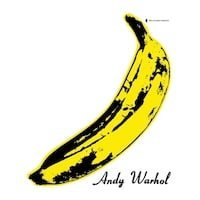
The Velvet Underground & Nico by Nico and The Velvet Underground
(Verve – 1967)
Tom Hudson (Pulled Apart by Horses): This is the debut of all debut’s for me. I was late to the game with this album and only (properly) discovered it about 10 years ago. It’s still one I always come back to now and still sounds so fresh. From a songwriting perspective, it’s riding the perfect line of playful naivety, experimentalism amongst popular music sensibilities, and rock n roll. I love the rawness of the recording, it feels like it’s captured the spirit of the songs in their truest form and makes you feel like you’re a spectator sat in the middle of the room as the band jams out. John Cale’s pitch wavering, droned strings marry up with the bouncing rock n roll bass & guitar, Lou Reid’s genius lacklustre vocals beautifully paired with Nico’s statuesque delivery as Mo Tucker minimally beats the tambourine, tom & snare – just about managing to lock the chaos into place (yet feeling like it could run off the rails at any moment). And just to level it up one more… they go and slap a big old iconic Andy Warhol banana on the cover and seal the deal for one of the most genius debut albums of all time.
 Verities & Balderdash by Harry Chapin
Verities & Balderdash by Harry Chapin
(Elektra – 1974)
Jake Hunsigner (Jake Hunsinger & The Rock Bottom Band): Songwriting is an experiment in finding where magic and meaning meet. Better songwriting is accomplishing that with your own idiosyncrasies and weirdness. Great songwriting is doing it with succinct clarity. Harry Chapin’s Verities & Balderdash is, for me, a guide on amazing narrative songwriting. In clear and compelling form, Chapin sings about a world full of messy people. Whether it be the triumphant infidelity found in I Wanna Learn A Love Song or the stark warning to fathers everywhere found in Cats In The Cradle, each song on this album is a novel. Doesn’t hurt that the music is good too.
 What’s Going On by Marvin Gaye
What’s Going On by Marvin Gaye
(Tamla – 1971)
Randolph Matthews: Marvin Gaye’s What’s Going On LP, for me, is a masterpiece. Not many albums lyrically gave me a snapshot of the world at the time of its release and still remain very relevant decades later. The entire album is a brilliant and beautiful opus. What’s Going On has been universally loved and highly praised in all circles. This album began a new chapter in my career as a songwriter because there were no saccharine sweet love songs it was just straight-up, unembellished truth seen from the eyes of a sensitive, tortured genius, which was close to my heart.
 When I Was Born For The 7th Time by Cornershop
When I Was Born For The 7th Time by Cornershop
(Wiiija – 1997)
Sameer Gadhia (Young The Giant): Cornershop’s 1997 release When I Was Born For The 7th Time is a record I’ve used as a wellspring for inspiration for our upcoming record American Bollywood. It was so immensely ahead of its time that even 25 years later, it should still be categorized as such. It tackles the nuanced paradox of British Indian existence and reappropriates both spiritualism and South Asian instrumentation with unmatched elegance and wit. As a songwriter, one should always strive for simplicity, and even with such lofty narrative and sonic goals, Cornershop are all aces.
 When The Pawn… by Fiona Apple
When The Pawn… by Fiona Apple
(Epic – 1999)
Ishani: I think for me, Fiona Apple’s second album, the one that had an entire poem for its title, stands out for its songwriting. When The Pawn… was solely written by Apple and it’s the perfect sad girl’s starter pack. The album has had an impact on my own songwriting. Paper Bag remains my favourite single with its surreal imagery, poetic storytelling and layers of dark humour. I love it when an artist manages to make me laugh or smile as a listener. It’s a bonus, in my opinion, as you get to fall in love with her quirky personality.
 Wrecking Ball by Emmylou Harris
Wrecking Ball by Emmylou Harris
(Elektra – 1995)
Johnny Duke: The songs on Emmylou Harris’s album Wrecking Ball portray the longing of a bleeding heart with poetic imagery. Dylan’s lines in Every Grain of Sand reach deep into the realm of epistemology. Anna McGarrigle’s Goin’ Back To Harlan depicts the hardship and beauty of Appalachian life through folklore. Lucinda Williams’s writing touches on the preciousness of life in Sweet Old World, written to someone who chose to leave this world. Gillian Welch’s Orphan Girl shows life through the eyes of an orphan. The amalgam of the lyrical genius that went into this album has deeply touched my life.
 XO by Elliot Smith
XO by Elliot Smith
(DreamWorks – 1998)
ATTAWALPA: My first listen to XO soothed me. My soul, my confidence (as a person and as a writer). It was like a sonic sorbet. Elliot Smith’s songwriting struck me as a modern Neil Young mixed with a futuristic, settled Kurt Cobain. His songs are more emotional than angry and super relatable. Above all XO was a friendly understanding voice to my current discomfort and uncertainty at the time. Elliot’s seemingly careless delivery of the most beautiful melody with a comical line is just genius. I need humour in writing, it keeps me going. Art can never be too serious and this album is the perfect elixir. Every song treats the listener to a story, a struggle, a window into some sort of pain. From Sweet Adeline’s playful acoustic guitar line, drawing in our ears to this 44-minutes and 46-seconds of joy and journey, XO will always shine and I feel it will be an important record for comfort in heartbreak, frustration and love in years to come.
Read about The Albums That Changed Everything

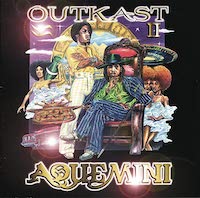 Aquemini by Outkast
Aquemini by Outkast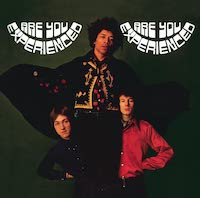 Are You Experienced by Jimi Hendrix
Are You Experienced by Jimi Hendrix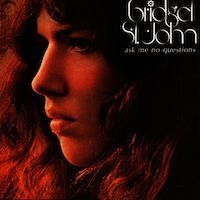 Ask Me No Questions by Bridget St John
Ask Me No Questions by Bridget St John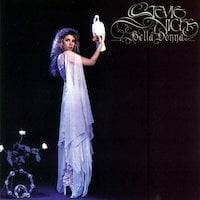 Bella Donna by Stevie Nicks
Bella Donna by Stevie Nicks
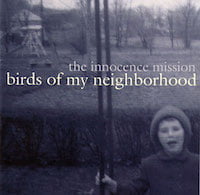 Birds Of My Neighborhood by The Innocence Mission
Birds Of My Neighborhood by The Innocence Mission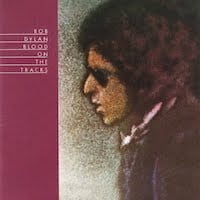 Blood On The Tracks by Bob Dylan
Blood On The Tracks by Bob Dylan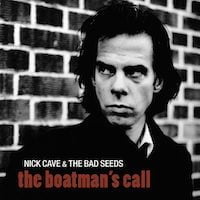 The Boatman’s Call by Nick Cave and the Bad Seeds
The Boatman’s Call by Nick Cave and the Bad Seeds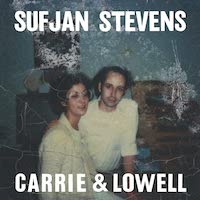 Carrie & Lowell by Sufjan Stevens
Carrie & Lowell by Sufjan Stevens Cross by Justice
Cross by Justice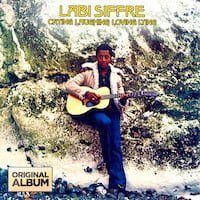 Crying, Laughing, Loving, Lying by Labi Siffre
Crying, Laughing, Loving, Lying by Labi Siffre Debut by Bjork
Debut by Bjork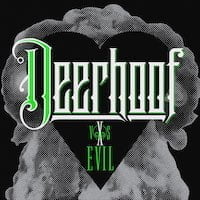 Deerhoof vs. Evil by Deerhoof
Deerhoof vs. Evil by Deerhoof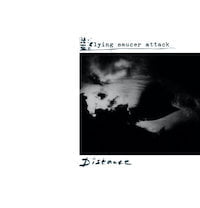 Distance by Flying Saucer Attack
Distance by Flying Saucer Attack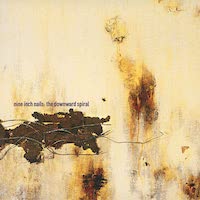 The Downward Spiral by Nine Inch Nails
The Downward Spiral by Nine Inch Nails Dragon New Warm Mountain I Believe In You – Big Thief
Dragon New Warm Mountain I Believe In You – Big Thief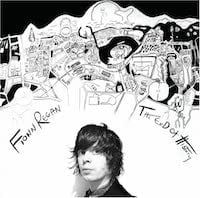 The End Of History by Fionn Regan
The End Of History by Fionn Regan Exile On Main St. by The Rolling Stones
Exile On Main St. by The Rolling Stones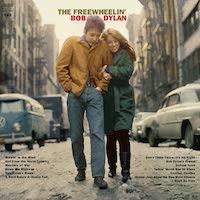 The Freewheelin’ Bob Dylan by Bob Dylan
The Freewheelin’ Bob Dylan by Bob Dylan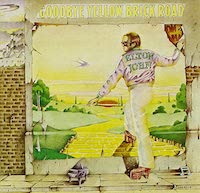 Goodbye Yellow Brick Road by Elton John
Goodbye Yellow Brick Road by Elton John Grace by Jeff Buckley
Grace by Jeff Buckley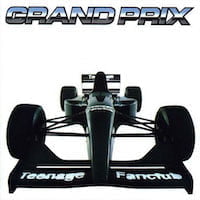 Grand Prix by Teenage Fanclub
Grand Prix by Teenage Fanclub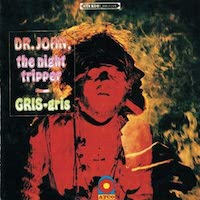 Gris Gris by Dr John
Gris Gris by Dr John Harvest by Neil Young
Harvest by Neil Young The Hissing Of Summer Lawns by Joni Mitchell
The Hissing Of Summer Lawns by Joni Mitchell Hot Dreams by Timber Timbre
Hot Dreams by Timber Timbre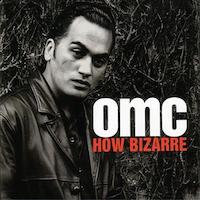 How Bizarre by OMC
How Bizarre by OMC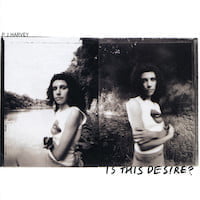 Is This Desire? by PJ Harvey
Is This Desire? by PJ Harvey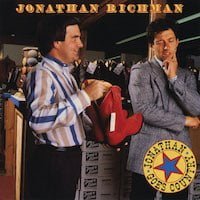 Jonathan Goes Country by Jonathan Richman
Jonathan Goes Country by Jonathan Richman Kid A by Radiohead
Kid A by Radiohead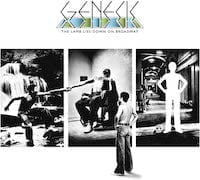 The Lamb Lies Down On Broadway by Genesis
The Lamb Lies Down On Broadway by Genesis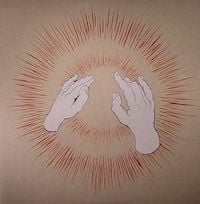 Lift Your Skinny Fists Like Antennas To Heaven by Godspeed You! Black Emperor
Lift Your Skinny Fists Like Antennas To Heaven by Godspeed You! Black Emperor Loveless by My Bloody Valentine
Loveless by My Bloody Valentine Mark Hollis by Mark Hollis
Mark Hollis by Mark Hollis Melodrama by Lorde
Melodrama by Lorde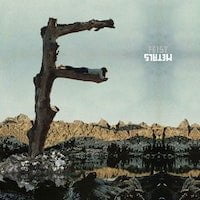 Metals by Feist
Metals by Feist The Modern Lovers by The Modern Lovers
The Modern Lovers by The Modern Lovers Nevermind by Nirvana
Nevermind by Nirvana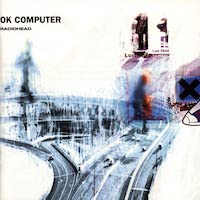 OK Computer by Radiohead
OK Computer by Radiohead Outside Child by Allison Russell
Outside Child by Allison Russell Purple Mountains by Purple Mountains
Purple Mountains by Purple Mountains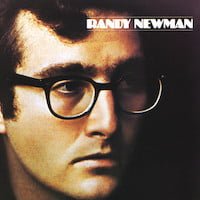 Randy Newman by Randy Newman
Randy Newman by Randy Newman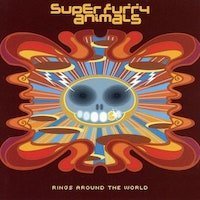 Rings Around The World by Super Furry Animals
Rings Around The World by Super Furry Animals The Rising by Bruce Springsteen
The Rising by Bruce Springsteen Rome by Danger Mouse & Daniele Luppi
Rome by Danger Mouse & Daniele Luppi 6 Feet Beneath The Moon by King Krule
6 Feet Beneath The Moon by King Krule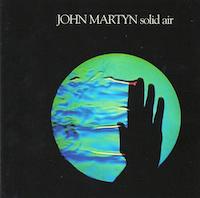 Solid Air by John Martyn
Solid Air by John Martyn Soul On Fire by Dean Blunt
Soul On Fire by Dean Blunt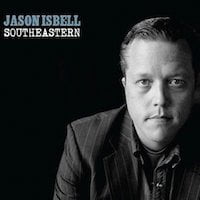 Southeastern by Jason Isbell
Southeastern by Jason Isbell Tak Zakalyalas Stal by Shortparis
Tak Zakalyalas Stal by Shortparis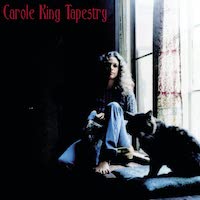 Tapestry by Carol King
Tapestry by Carol King Thanks For The Dance by Leonard Cohen
Thanks For The Dance by Leonard Cohen This Is Hardcore by Pulp
This Is Hardcore by Pulp The 3 Way by Lilys
The 3 Way by Lilys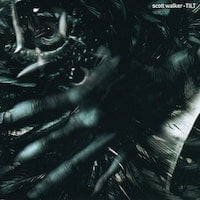 TILT by Scott Walker
TILT by Scott Walker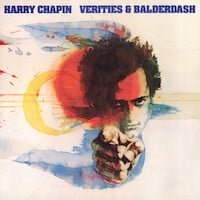 Verities & Balderdash by Harry Chapin
Verities & Balderdash by Harry Chapin What’s Going On by Marvin Gaye
What’s Going On by Marvin Gaye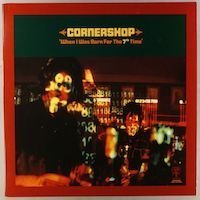 When I Was Born For The 7th Time by Cornershop
When I Was Born For The 7th Time by Cornershop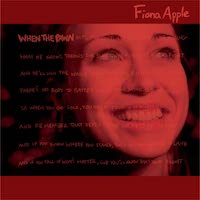 When The Pawn… by Fiona Apple
When The Pawn… by Fiona Apple Wrecking Ball by Emmylou Harris
Wrecking Ball by Emmylou Harris XO by Elliot Smith
XO by Elliot Smith


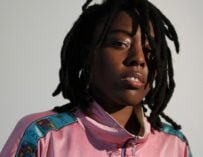

























Related Articles